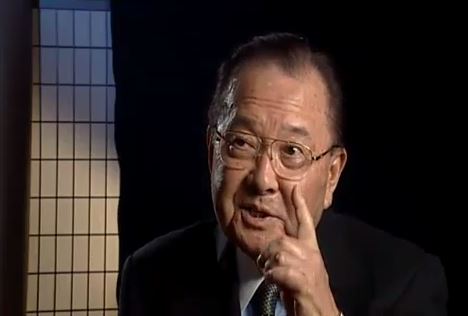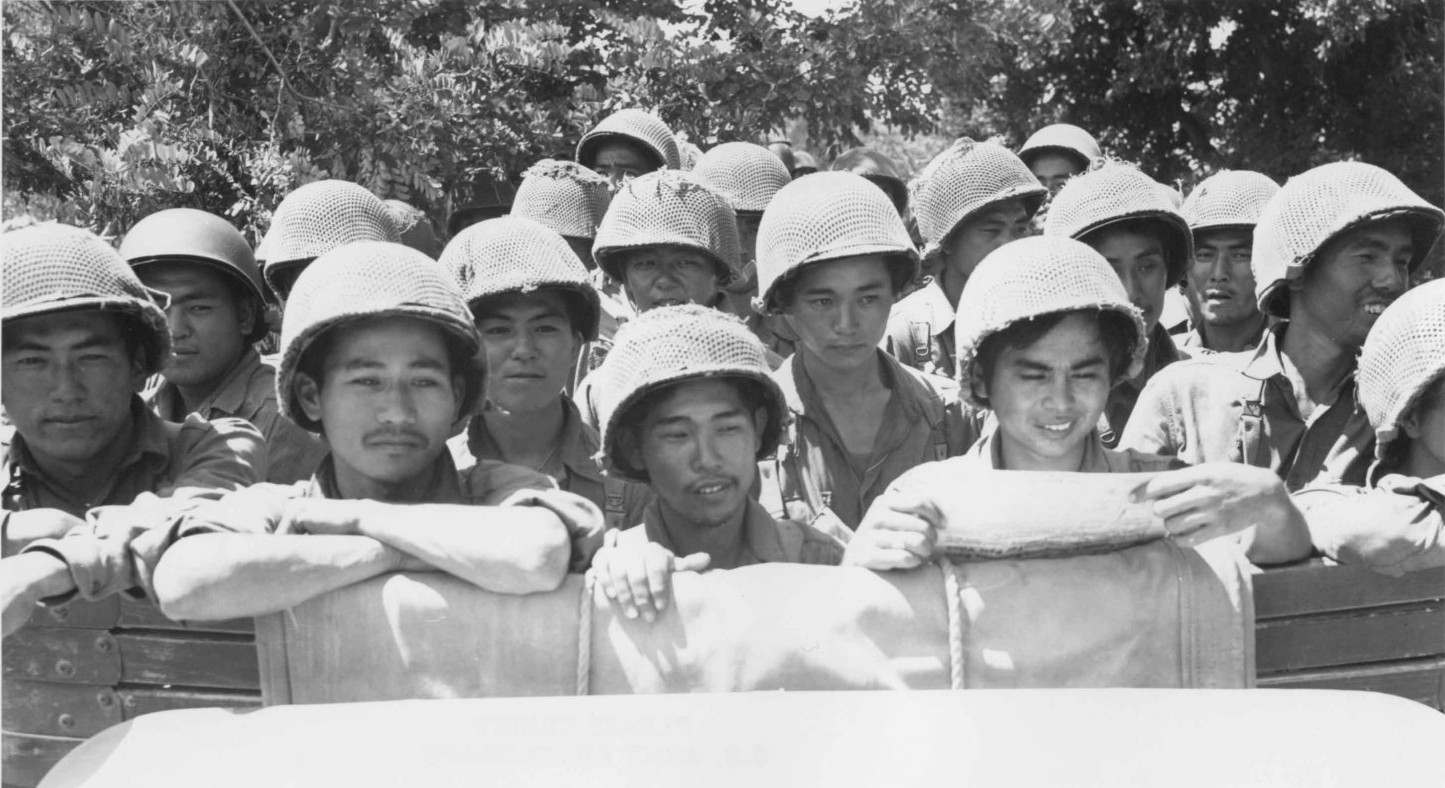Post written by Gavin Do, Associate Archivist at Go For Broke National Education Center
One of the consistent themes that our beloved Nisei veterans always made sure to emphasize during their oral history interviews was not allowing the past – specifically their past, riddled with injustice– to repeat itself. The theme of the past being repeated finds itself manifested in many phrases, adages, and clichés, for good reason. This time, I wanted to change it up and share a specific quote that I came across while reading a poignant, touching essay written by a veteran of the 522nd Field Artillery Battalion, Tadashi Tojo.
To provide some context, I want to note that Mr. Tojo wrote the essay about a singular incident during his experience as a member of the 522nd: coming across a satellite slave labor camp of the Dachau concentration camp in 1945. At that time, the 522nd had been detached from the 442nd Regimental Combat Team and was aiding in the Allies’ final push into southern Germany. During this campaign, Nisei soldiers from the 522nd stumbled upon the subcamp and found it abandoned by the German Army. The numerous accounts from the 522nd veterans all describe a horrific scene that demonstrated the most sickening depths that human beings could stoop to in order to torture and inflict suffering on others, simply for existing and living in a manner their oppressors did not deem fit. Many members of the 522nd also noted the irony in which a group of oppressed American soldiers of Japanese ancestry would help liberate a group of oppressed European Jews.
Aside from the passages describing his memories of the experience, there were two quotes that Mr. Tojo included which stuck out to me. After questioning how atrocities such as the Holocaust could have occurred, Mr. Tojo seemed to ask a simple question that everyone inherently wonders in times of adversity: “To me, when and where this inhumanity will end remains the paramount question.” Mr. Tojo also made sure to include what he considered words of wisdom from the noted playwright Eugene O’Neill: “There is no present or future, only the past, happening over and over again – now.”
These two quotes, considered simultaneously, paint an admittedly bleak picture of the world and humanity. The world, and our human existence, being cycles of inhumane acts is a bit of a pessimistic exaggeration. Instead, I like to think Mr. Tojo wrote these words more so as a reminder, a warning, and a call to action. Instead of observing this cycle of inhumanity as mere witnesses, Nisei veterans like Mr. Tadashi Tojo remind us to stand strong and simply do what is right and just. As we live in what can be an incredibly divisive world today, it can be difficult to exhibit the same courage and follow that lead. In order to break the cycle of injustice and inhumanity, however, it takes exceptional courage and conviction to follow through and act with purpose to show our fellow person compassion.
Luckily, we have the Nisei soldiers, their stories, and their collective legacy to help serve as a reminder to act courageously in our daily lives, similar to the manner in which they did, and continue to do. In addition to our oral history interviews, Go For Broke National Education Center will unveil an exhibit, Defining Courage, in late May. This interactive exhibit will demonstrate that the courage displayed by the Nisei veterans is still meaningful and applicable to our contemporary society. This exhibit is proof that the words and actions of the Nisei veterans did not fall upon deaf ears.
Lastly, I would like to circle back to Mr. Tojo and highlight his insightfulness and wisdom once more. In his oral history interview, Mr. Tojo takes the time to discuss his essay and he later segues to sharing additional thoughts brought on by discussing the quote from Eugene O’Neill. Mr. Tojo expressed his belief that in this world, individuals must take the care to show their fellow human beings compassion. He explains that his war experiences and the horrors that he had witnessed only made him certain of one thing: simply put, he does not know the solution to mending the fractured relationships that exist in the world. He does think, however, that finding inner peace, showing compassion to one’s fellow person, and acting considerately towards others are all positive, significant steps towards making the world a better place. Having the courage to follow this advice may seem difficult, but making a positive impact is rarely easy.
The Nisei veterans have the reputation of being brave and humble patriots who tenaciously defended their country without a second thought to the hardship and sacrifice that lay ahead of them. Let us not forget, however, how wise these men are. Listening to the words from veterans such as Mr. Tadashi Tojo serves as a reminder that the legacy of the Nisei soldier is a rich, deep, and powerful story that demonstrates courage in all facets of life. That story of courage can help mold our present into a more united, compassionate future by reminding us of our past triumphs, along with our past mistakes.


